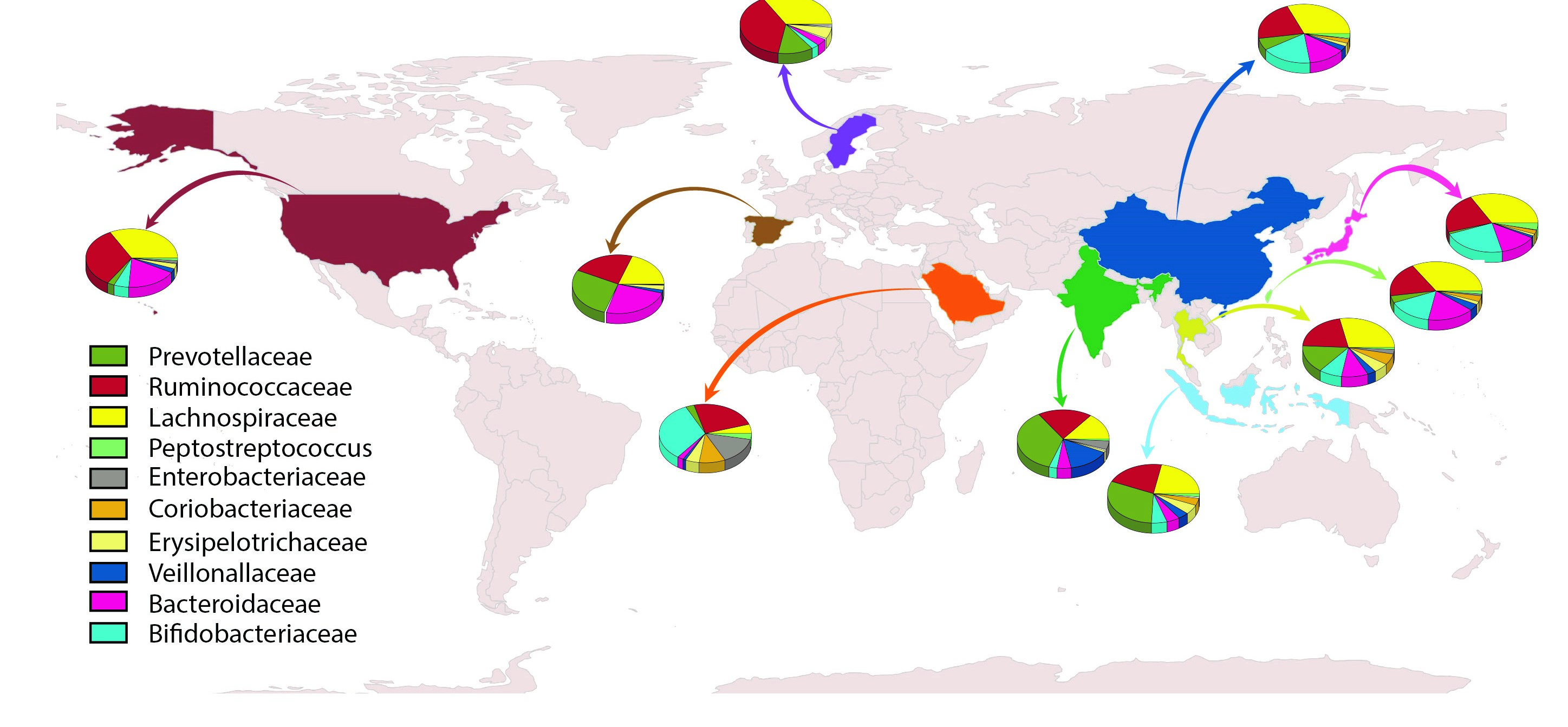
The Indian Gut Microbiome
We have recently published the largest ever study of the gut microbiome of more than 200 healthy human samples from distinct locations in India using multi-omics approaches, including 16S rRNA gene amplicon sequencing, whole genome shotgun metagenomic sequencing, and metabolomic profiling of faecal and serum samples.The study reveals the unique composition of Indian gut microbiome, establishes the Indian gut microbial gene catalogue, established the role of Prevotella species in IGM, and compares it with the gut microbiome of other populations. The functional associations revealed using metagenomic and metabolomic approaches provide novel insights on the gut-oral-microbe-metabolic axis, which will be useful for future epidemiological and translational researches. The studies are published in 'GigaScience, Nature Biofims and Microbiome, mSystems, Microbial Ecology, and Frontiers' journals in 2019-2022.


